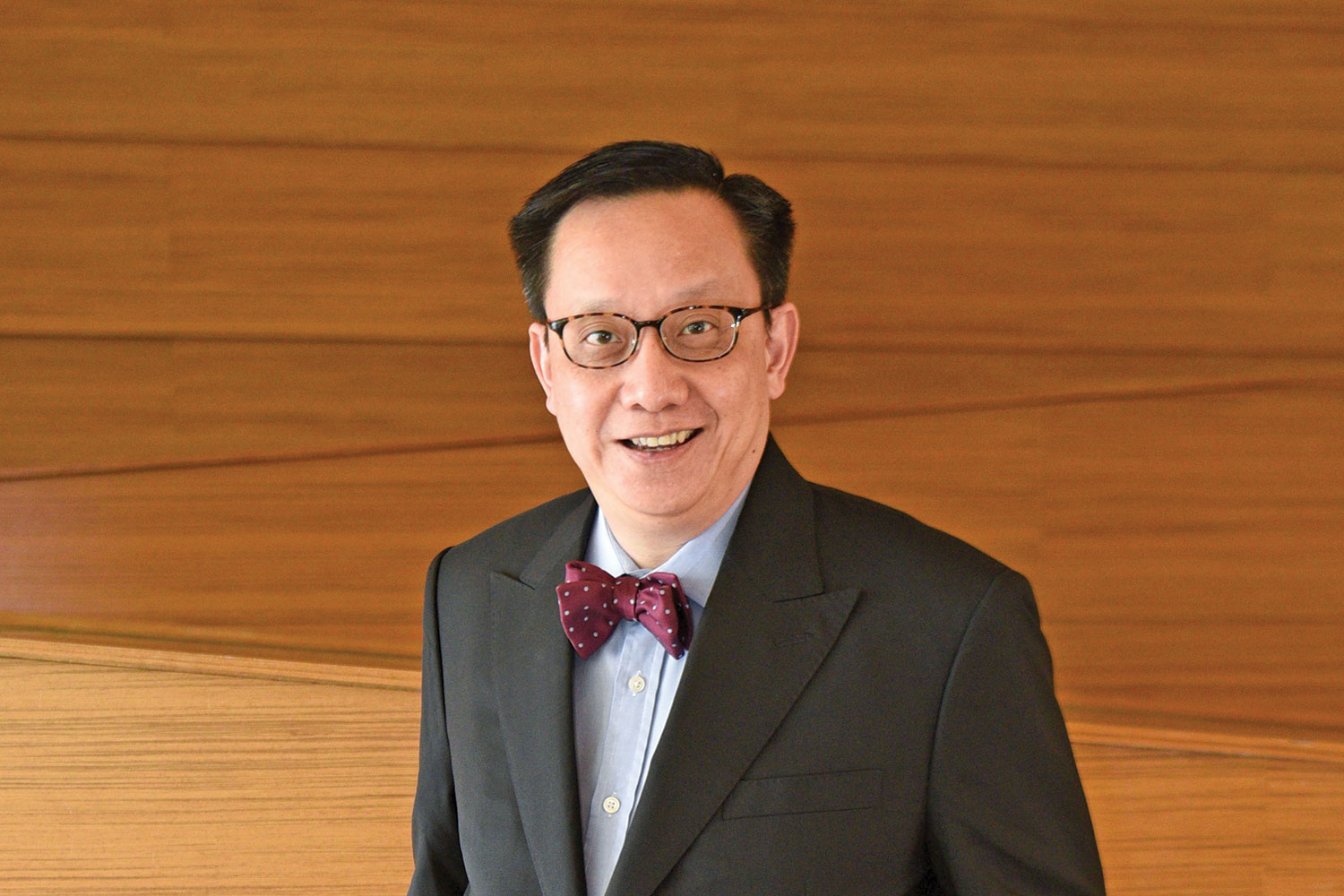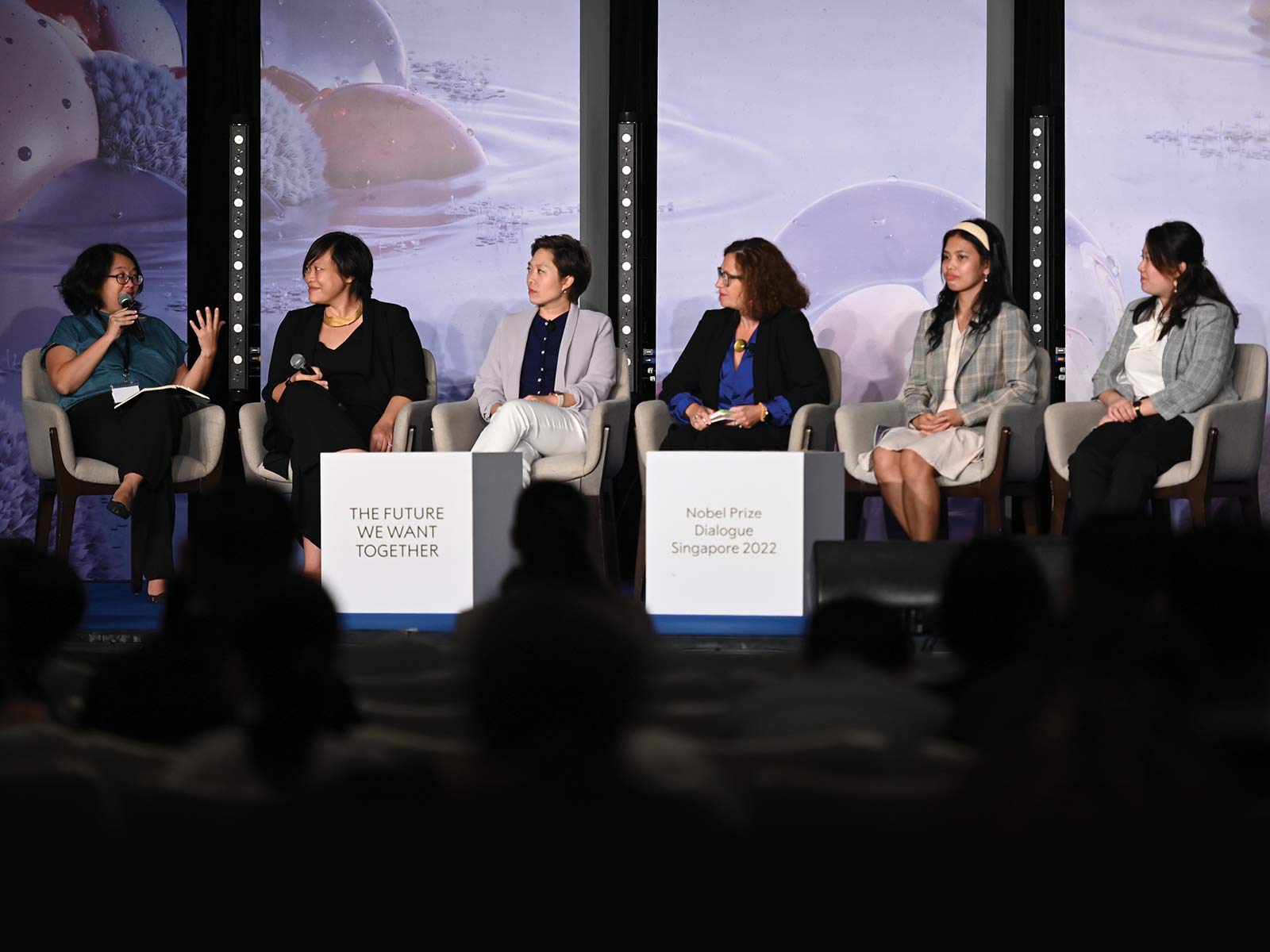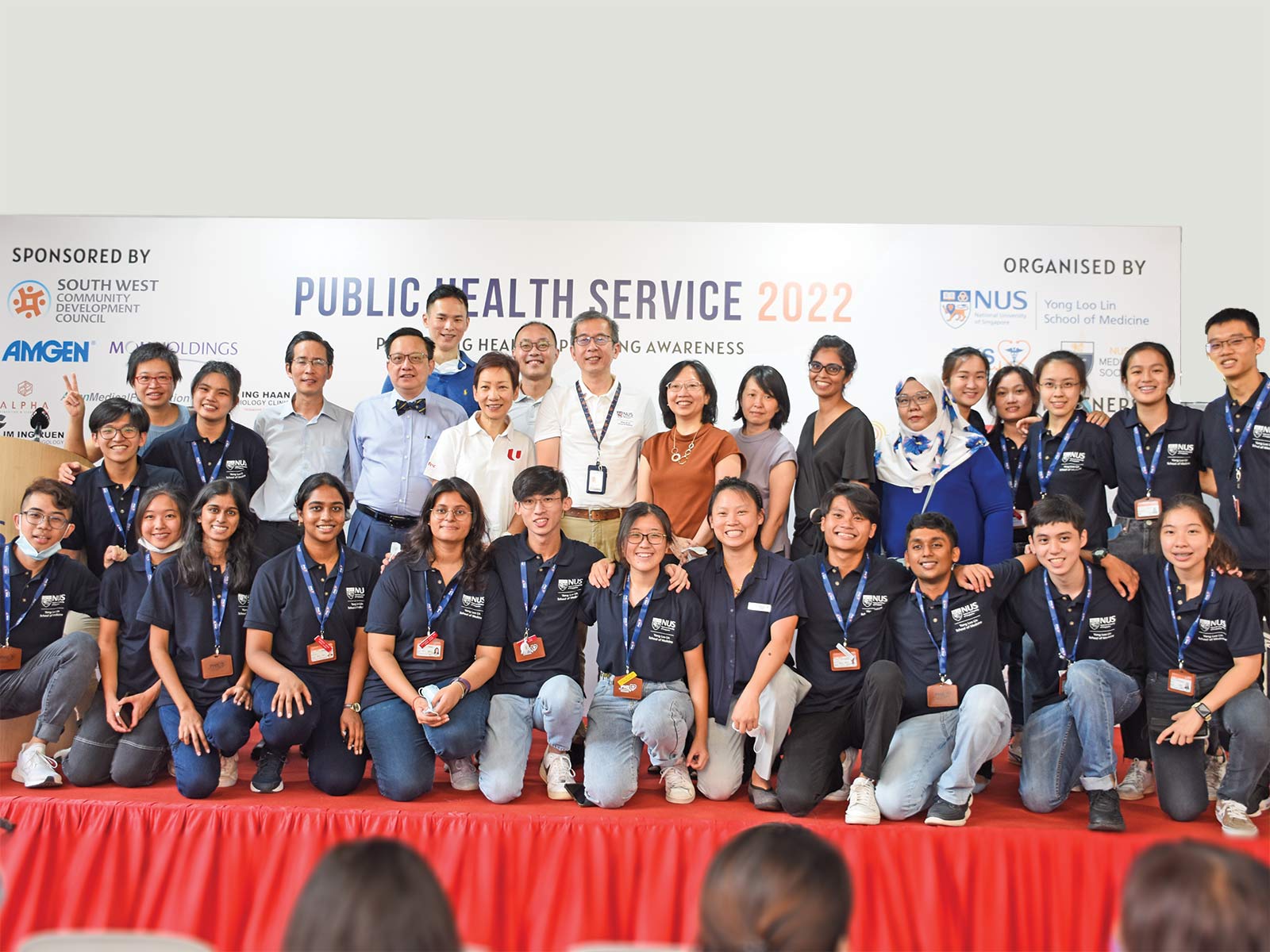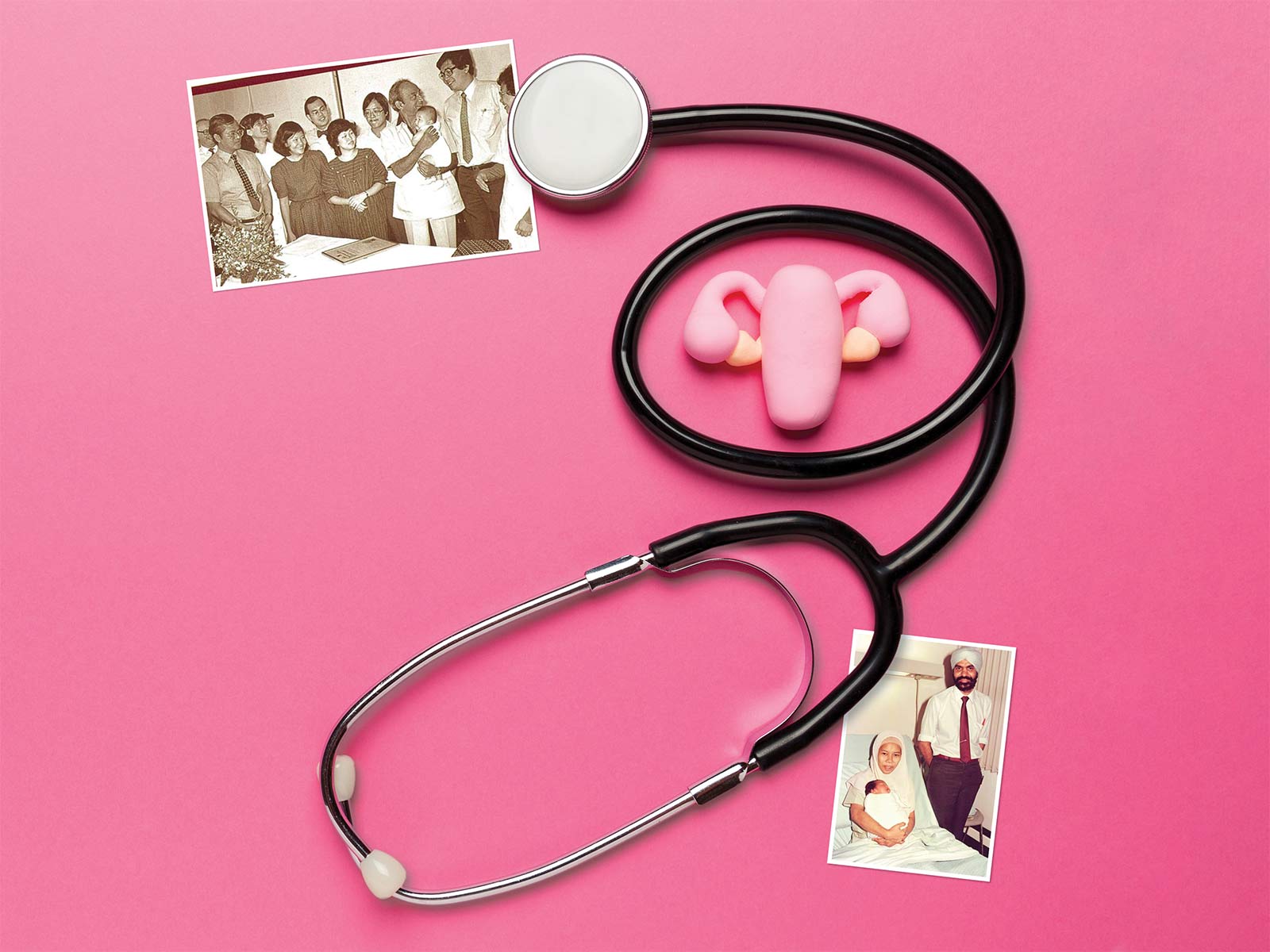
Dean’s Message
Oct 2022
DEAN’S MESSAGE

Two months ago, on August 29, Singaporeans celebrated a second national day. That Monday, we took a deep, collective breath and removed the masks that had become part of our daily street and workwear. That long-awaited, anticipated move was emancipation—it represented a national cathartic, metaphorical jettisoning of the shackles that COVID-19 had placed on our individual and collective freedoms.
Unmasked, we sniffed the air cautiously, wary after more than two and a half years of hiding behind paper and cloth facial screens. Some stepped out gleefully, glad to be able to scan the faces of people around them as they took that step towards a long-awaited new normal. Others decided discretion still trumped valour and kept their masks firmly on, wary of a virus that does not seem to be quite vanquished. Their prudence found resonance in a September update from the WHO, which warned that the continuing rise in COVID-19 infections spelt a challenging autumn and winter for Europe. With international tourism reviving, what happens in the northern hemisphere will find its way around the world, including to Singapore.
Still, thanks to our high vaccination rates, pandemic preparations and an alert and competent healthcare system, Singapore should be able to ride out the next wave of infections when it comes. While we may not be fully living life in the new normal, life continues as normally as we can make it.
Here at NUS Medicine, the academic year rolled on, marked by milestone events like Commencement (where we were able to celebrate the graduating Class of 2022 in time-honoured style, live and in person), the White Coat Ceremony for the incoming Class of 2027 and the Medical Grand Challenge. This annual event brought combined student teams from Medicine, Arts and Social Sciences, Engineering, Science, Engineering, Business, and Law together to innovate solutions for unmet healthcare needs. Also making a return after an enforced two-year hiatus was the Public Health Screening (PHS) service. Held in Jurong in August, PHS was planned and conducted by NUS Medicine students, working in partnership with counterparts from Nursing, Social Work as well as volunteers and various agencies.
And for the very first time in September, the School hosted eight Nobel Prize laureates in a series of discussions on the challenges facing the world with students here and across the Asia-Pacific region. Organised in partnership with the Nobel Prize Outreach, an arm of the Nobel Prize Organisation, and the Asian Medical Students’ Association, the discussions and one-day plenary that made up the Nobel Prize Dialogue Singapore was themed, ‘The Future We Want Together’. The youth and Nobel Prize laureates, as well as local and international thought leaders, who come from disciplines that range from economics to climate science, shared, reviewed and crystallised ideas and suggestions that could help deal with the most critical problems facing the world today.
On the research front, a team led by Assistant Professor Minh Le from the Institute for Digital Medicine (WisDM) and Department of Pharmacology and Associate Professor Andrew Grimson from the Department of Molecular Biology and Genetics at Cornell University, have found that particles which are secreted by tumour cells, extracellular vesicles (EVs), displayed a high level of protein integrins αv and β1, in patients with locally advanced and metastatic breast cancer.
Still, thanks to our high vaccination rates, pandemic preparations and an alert and competent healthcare system, Singapore should be able to ride out the next wave of infections when it comes. While we may not be fully living life in the new normal, life continues as normally as we can make it.”
This finding holds promise for these protein integrins as non-invasive biomarkers in breast cancer detection. One woman is diagnosed with breast cancer every fourteen seconds somewhere across the globe—based on data showing that an approximate 2.3 million women worldwide were newly diagnosed with breast cancer in 2020.
In Singapore, it is the most common cancer among women, and will likely affect one in 13 women in their lifespan. Although advances in medicine today allow for treatments for early-stage and non-metastatic breast cancer, advanced stage and metastatic breast cancer are considered incurable with current treatment options, with very poor prognosis. The early detection of breast cancer metastasis is therefore paramount in the treatment of the condition.
In related news, another team of researchers at NUS Medicine has succeeded in using a plant-derived nutrient supplement to shrink breast cancer tumours in preclinical models. The team led by Assistant Professor Chester Drum, a Senior Consultant in the Department of Cardiology, National University Heart Centre, Singapore, used a novel nanotechnology to repurpose a nutritional component in plants to become a potent treatment for breast cancer.
As the nanotechnology converts the plant nutrient into chemotherapy only at the site of the tumour, the treatment is both potent and free from side effects at the same time. Although the study was performed in preclinical models using the new technology, human breast cancer cells were used as the target: these responded with a complete remission. The researchers hope to next apply the technology in clinical trials and for additional solid tumours which are difficult to treat or remove via standard surgery.
And to end my message on this continual happy note, I am pleased to inform you that the School has appointed Professor Julian Savalescu as director of the Centre for Biomedical Ethics. Prof Savalescu, an award-winning ethicist and moral philosopher, is trained in neuroscience, medicine, and philosophy, and was the Uehiro Chair in Practical Ethics at the University of Oxford from 2002, where he founded the Oxford Uehiro Centre for Practical Ethics in 2003. He is also co-director of the Wellcome Centre for Ethics and Humanities and is also Distinguished Visiting Professorial Fellow at Murdoch Children’s Research Institute and Melbourne Law School, where he directs the Biomedical Ethics Research Group. Prof Savulescu, a Fellow of the Australian Academy of Health and Medical Sciences, was editor in chief of the Journal of Medical Ethics for a period of 12 years over two tenures, and founded the open access Journal of Practical Ethics.
Yours sincerely,




